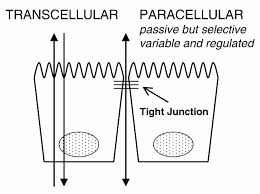The meeting is off to a good start.
I attended a session sponsored by the American Physiological Society on Animal Models of hypertension caused by the nervous system, or neurogenic hypertension. While their definition of comparative really only meant rats, dogs and humans, I found it very interesting nonetheless. The speaker, Dr. Olson from the University of Minnesota, explained the pros and cons of trying to develop devices to treat neurogenic hypertension using different animal models. The reason why rodents are not good models is because they are too small to develop devices for in comparison to larger animals in which a device may be created that would also work to treat humans.
I also attended the Walter B. Cannon lecture, which is the American Physiological Society's highest honor. This year's speaker was James M. Anderson, MD, PhD (director of the NIH Division of Program Coordination, Planning, and Strategic Initiatives). The purpose of this lectureship is to recognize and honor the 'lifetime achievement of an outstanding physiological scientist and APS member.' Dr. Anderson presented his lecture titled, “The Contribution of Paracellular Transport to Epithelial Homeostasis.” In case you are wondering paracellular transport is, it is when solutes move between cells to cross epithelial barriers. The epithelium is the tissue that lines hollow organs or glands. Therefore it serves as a barrier between the outside world and your body. Think: skin, digestive system, kidneys, respiratory tract. Early researchers in this field had called these connections "tight junctions" because they thought they were impermeable. However, it has since been discovered that various substances can pass between cells as shown in the image below. This is not a free-for-all, but is a tightly regulated process in the body.
 Image from www.physiologyonline.physiology.org
Image from www.physiologyonline.physiology.org
I am also looking forward to Dr. Kazuhiro Nakamura's (Kyoto University, Japan) talk tomorrow evening. He is the recipient of this year's Henry Pickering Bowditch Award Lectureship for early-career achievement. The award honors a member of the American Physiological Society who is under 42 years of age for their outstanding accomplishments in physiology. The title of Dr. Nakamura's talk will be “Central Thermoregulatory System: A Mechanism that Defends Life from Various Environmental Stressors.”
Source:

Hello,I found the results of the session you attended at the American physiological society of animal models of hypertension very interesting.